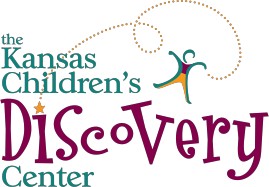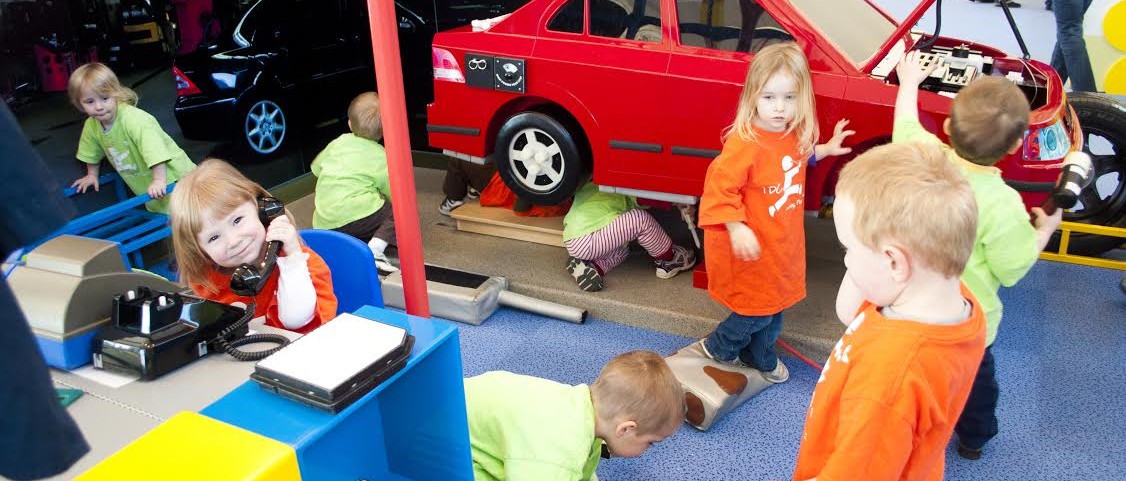
The Kansas Children’s Discovery Center is a hands-on children’s museum with a mission to enhance the lives of children and enrich the communities it serves. Since opening in 2011 in Topeka, Kansas, the Discovery Center has become a special place where children can explore, create, discover and learn through play. The museum has hosted visitors from all 50 states and 23 countries.
The Discovery Center features 15,000 square feet of indoor exhibits exploring science, careers, art, building and more, special space for babies and toddlers, and a 4.5-acre certified Nature Explore Outdoor Classroom. Daily programs, field trips, birthday parties and other special events provide additional opportunities for serious fun. Outreach programs bring quality, hands-on experiences into our community to inspire a lifelong love of learning for every child.
The Kansas Children’s Discovery Center believes play is powerful, and quality play experiences are transformational for children and families. The Discovery Center serves as the gateway for a lifelong love of learning filled with curiosity and exploration. Centrally located in Topeka, the capital city of Kansas, the museum is filled with educational exhibits promoting science exploration, art creation, and dramatic play. Outside, children explore forests, streams, vegetable gardens, and a tallgrass prairie. The entire museum is designed for children to lead the way and follow their interests as they learn and grow, strengthening relationships with their caregivers along the way. More than 100,000 annual visitors experience the museum, mostly children under age five from Shawnee County, including nearly 10,000 annual field trip students from surrounding schools. Museum access is critical. Nearly 15% of children in Shawnee County live in households with incomes under the poverty line. Access programs provide free and discounted admissions that account for more than a third of daily admissions. The museum has built programs to meet the unique needs of refugee families, medically fragile children, children with incarcerated caregivers, children with autism, children in foster care, and other vulnerable populations. In our community, we advocate for play, and the importance of informal education opportunities that allow children to chart the course of their own learning.
Mission
The Kansas Children’s Discovery Center enhances the lives of children and enriches the communities it serves.
Vision
Kansas Children’s Discovery Center strives to offer a safe, welcoming environment offering high quality hands-on experiences that inspire a lifelong love of learning for every child. We aspire to be a community anchor and a statewide leader among supporters of all children.
Diversity Statement
The Kansas Children’s Discovery Center believes every child deserves rich and diverse museum experiences. We are committed to ensuring accessibility for every family. We strive to remove barriers that prevent play at our children’s museum, including financial, medical and developmental. We are proud to serve as a community anchor where all families are celebrated. Our guests are all welcomed to visit without regard to age, race, gender, ethnicity, religion, sexual orientation, gender expression, sexual identity, ability, language, family circumstances and cultural backgrounds.
More about how we make play accessible to every child.
Financial Information
The Kansas Children's Discovery Center is a privately-funded nonprofit, 501(c)(3) organization. We rely on generous donors as well as admissions and grants to fund our work.
Annual Report
IRS Form 990
Our Building
The Discovery Center's 15,708 sq ft building is nestled within four wooded acres of Topeka's Gage Park, providing numerous opportunities for outdoor exploration and discovery. The energy-efficient building creates a positive learning environment that enhances the exhibit experience and a wonderful connection to the outdoors through natural daylight. From the dramatic roof line that collects rainwater, to the rainbow colored glass wall, to the illuminated beacon vestibule, the building creates adventure and excitement at first glance. Contact us to schedule building tours.
More about our building.
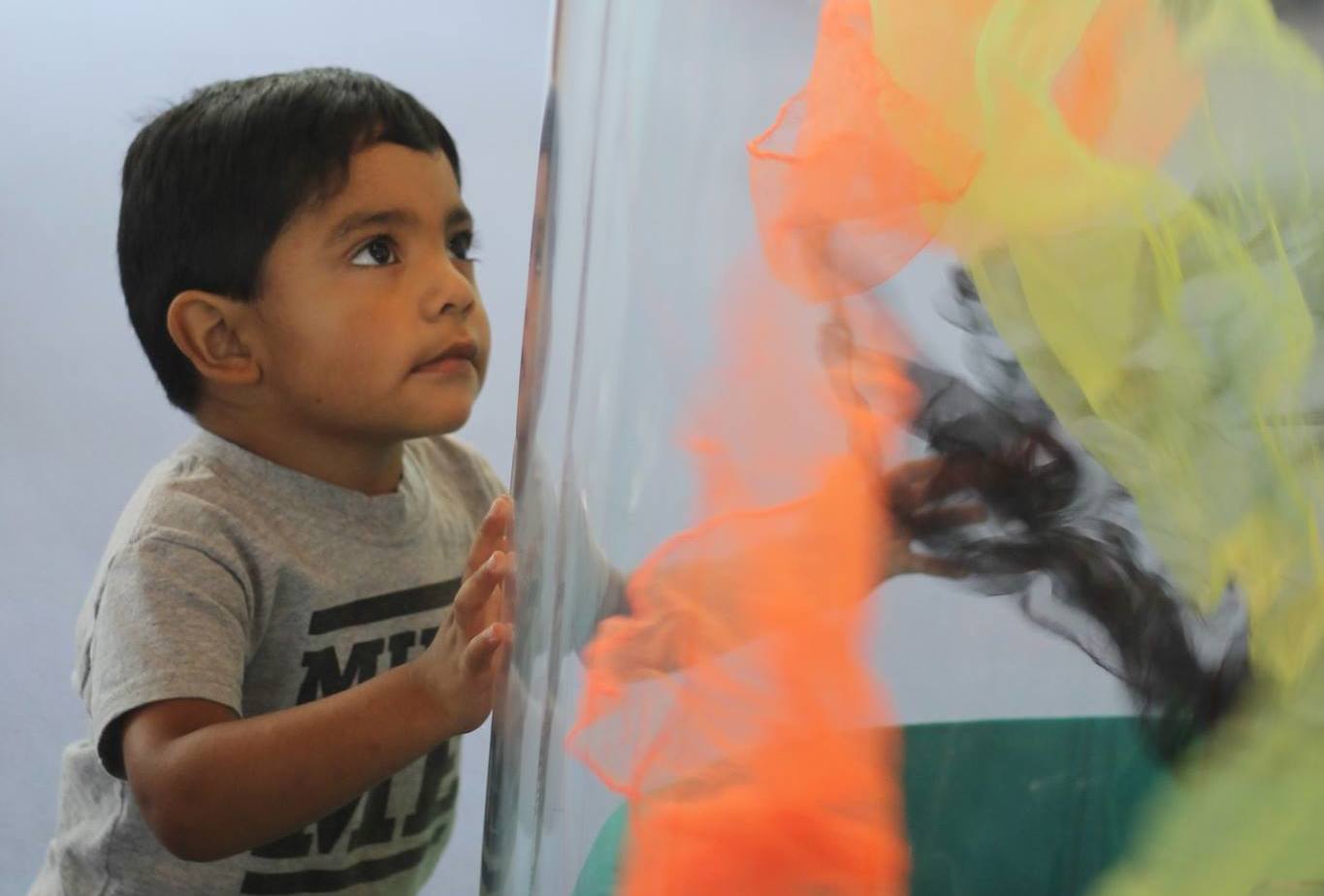
Exhibits
What will you discover at the Kansas Children's Discovery Center?
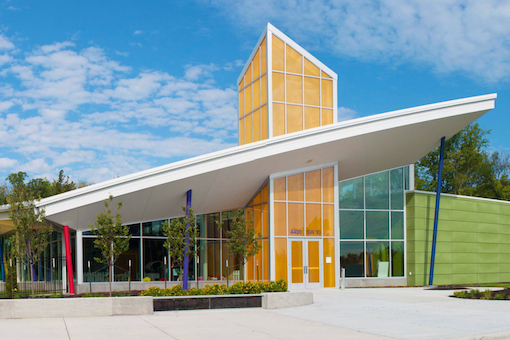
Hours and Admission
Find out when you can visit and available discounts.
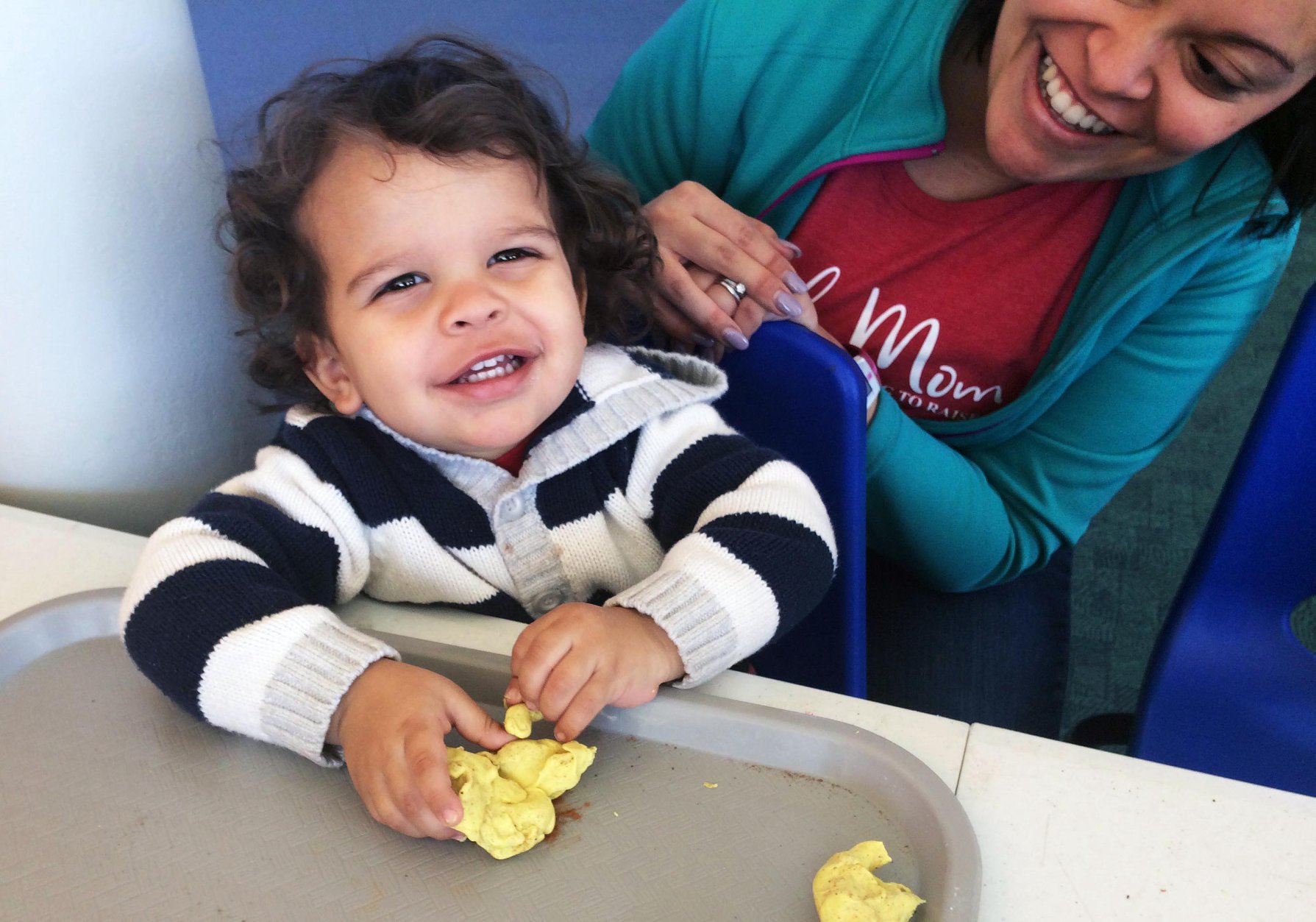
Frequently Asked Questions
Q: Will the kids have fun? A: Yes!
